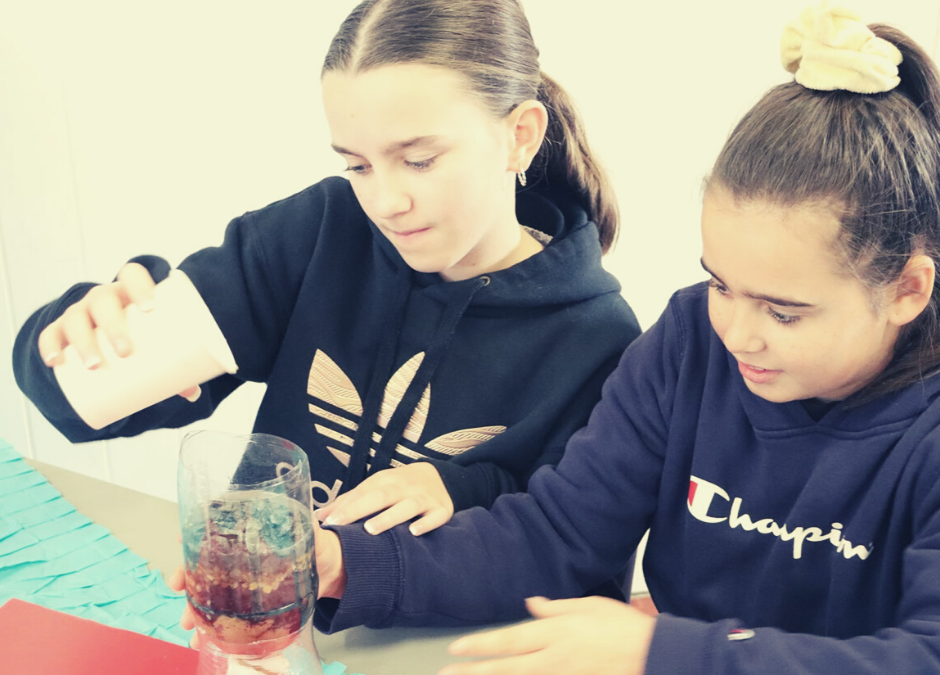Inspiring Aboriginal & Torres Strait Islander children to explore a future in engineering is a key tenet of EWB’s “Reimagining Pathways” program. As part of the first phase of this program, the Aboriginal Education Consulting Group (AECG) invited EWB to support one of their regular STEM camps. The camp was an opportunity for EWB to test creative approaches to outreach. The aim is to inspire the next generation of Aboriginal & Torres Strait Islander engineers. Story by Ian Cunningham.
In July 2021, more than 70 primary and high school Koori students from 10 schools on Gundungurra and Darug Country – in the Blue Mountains region of New South Wales – participated in AECG’s camp and EWB’s outreach workshop. The AECG camps are run across NSW and aim to address the generational change that is needed for students to achieve better outcomes at school. The camps support learning and employment in the areas of Science, Technology, Engineering and Mathematics (STEM), and encourage students to challenge themselves through STEM-led activities. EWB’s “Reimagining Pathways” program aims to foster interest in engineering for Aboriginal and Torres Strait Islander people. The initial phase, launched in December 2020, is being generously supported by Bindy and David Koadlow. This phase has focused on researching existing pathway initiatives and literature, exploring engineering sector change, scoping a collaboration with Engineers Australia’s Indigenous Engineers Group and designing creative outreach approaches tailored for young Aboriginal and Torres Strait Islander people. Pilots, including the AECG camp, have been conducted to test the outreach models and gain feedback from participants.
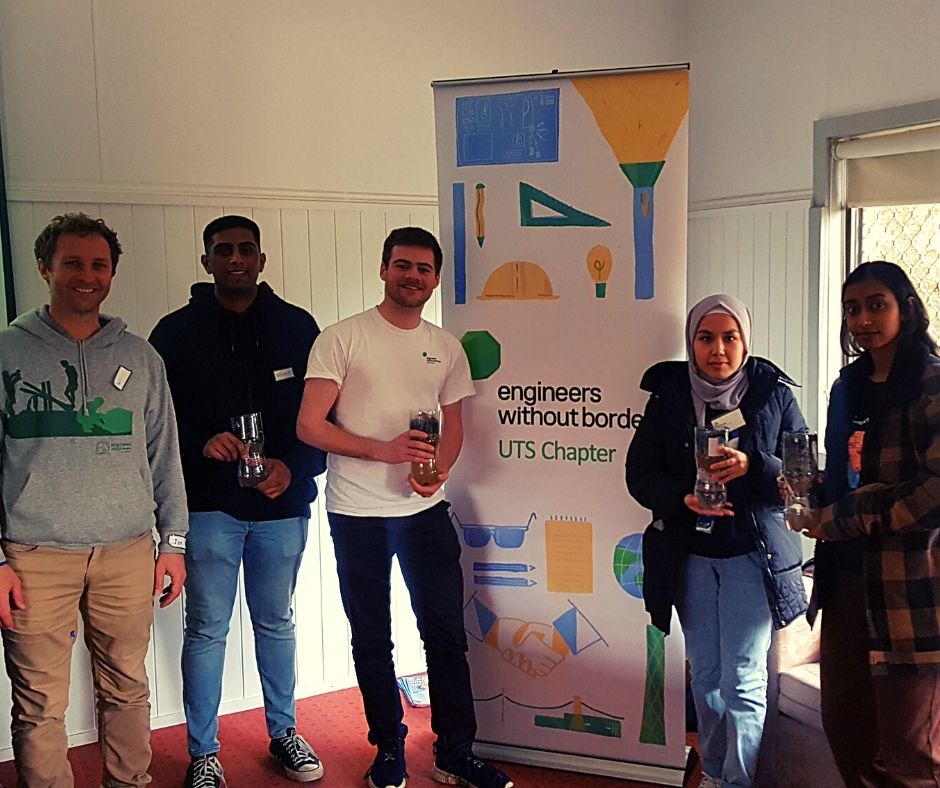
EWB facilitators at the ACEG camp
Engineering as tangible, relevant and possible
The AECG camp was an opportunity to test outreach approaches and gain feedback from the children and youth participants. The AECG pilot aimed to build understanding of what engineering is or could be (‘tangible’); to explore how engineering could be applied to the participants’ Country, culture and community (‘relevant’); and, to identify Aboriginal and Torres Strait engineering role models and outline possible pathways into further engineering learning (‘possible’). The pilot built on relevant research conducted as part of the formative stages of the Pathways project, alongside EWB’s experience in school outreach and over ten years of experience working with Aboriginal and Torres Strait Islander individuals and organisations. Other creative outreach approaches included forming a culturally and gender diverse facilitation team, and using teaching resources that emphasised Aboriginal and Torres Strait Islander STEM role models to illustrate engineering types. Outreach resources also linked contemporary engineering with historical Indigenous knowledge. The workshop also included a design challenge that was geographically relevant – in this case, rainwater treatment in a Blue Mountains bushfire scenario. Resources for further STEM learning and career pathways, specifically targeted at young Aboriginal and Torres Strait Islanders, were also shared.
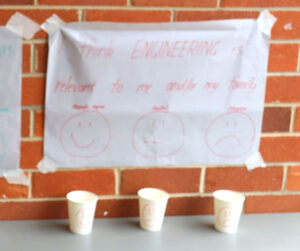
The pocket voting process
The workshop was facilitated across three groups during the camp. At the end of each workshop, students were asked to “pocket vote” to provide their feedback. In response to two questions, almost two thirds of students had a better understanding of what engineering is, and an understanding of the relevancy of engineering to themselves, and to their families.
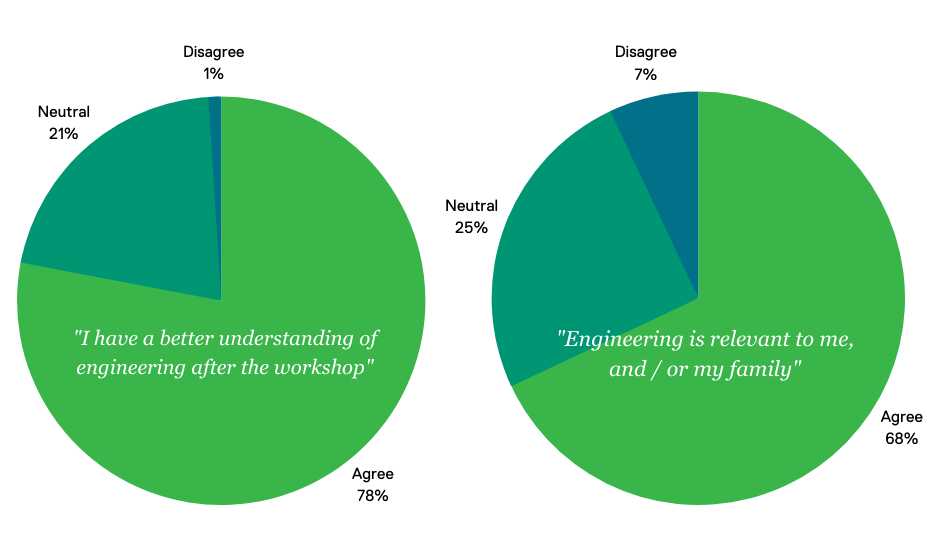
Participants were surveyed at the conclusion of the workshops
The next path for Pathways
As a result of the pilot, AECG has asked EWB to continue to support their STEM camps across NSW. The pilot has paved the way to further apply and test these approaches with more outreach opportunities, specifically those that are led by First Nations organisations. We also hope to partner with the Indigenous Engineers Group (IEG) to support their outreach work as the IEG network grows. Another opportunity we will be seeking to pilot is workshops where young people design for Country. Here, Traditional Owners would set the design topic and participants bring their creative design thinking to contribute their ideas. An example of this might be integrating young people’s design ideas into Engineering on Country projects or feeding into existing Traditional Owner aspirations.
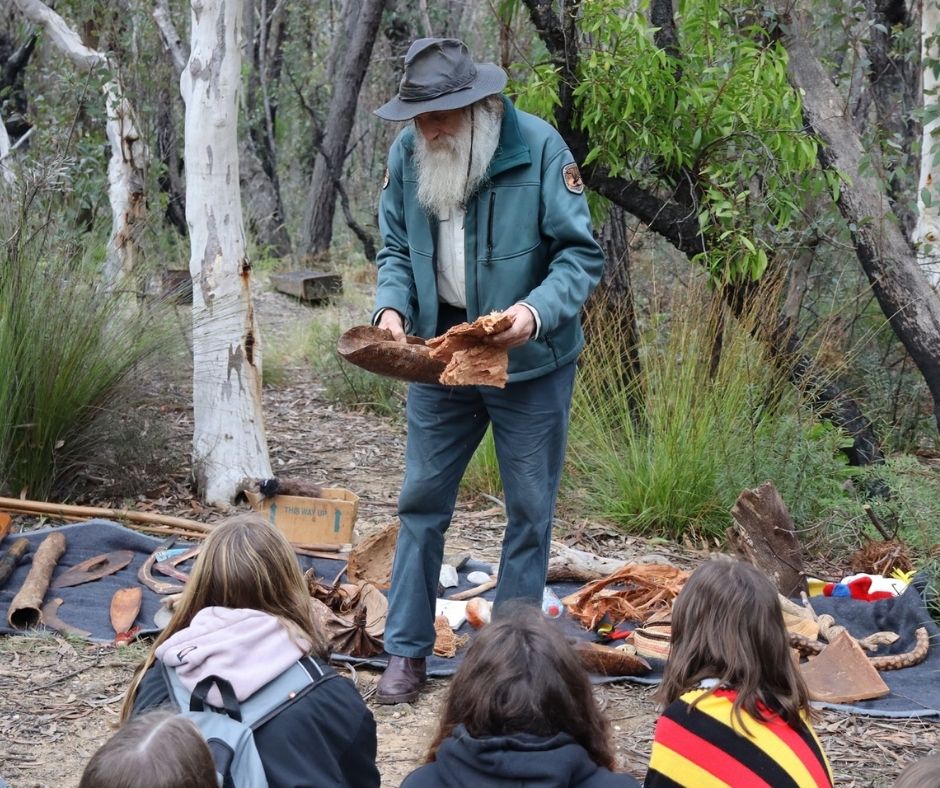
Students spend time On Country
Supporting pathways to reconciliation
Besides evolving EWB’s outreach initiatives, Pathways also recognise the need for the engineering sector (both professional and education), and for non-Indigenous people (like the author), to change. This requires reflecting on our individual and organisational roles in shaping engineering as a profession that is tangible, relevant, and possible for Aboriginal and Torres Strait Islander people. We don’t know yet what such a sector may look like. However, part of this pathway is building individual and organisational cultural competencies and culturally safe workplaces, but also probing and progressing: what would a decolonised engineering sector look like? And, what individual and organisational change is needed for this to happen? We hope the Pathways program can contribute to an engineering sector which values and learns from Aboriginal and Torres Strait Islander wisdom and expertise. We will all benefit when this happens. First, we believe it will lead to more contemporary Aboriginal and Torres Strait Islander engineers. In doing so, supporting the continuance First Nations’ innovation and design that has been in place for tens of thousands of years. Second, it will support better engineering design and nation building that integrates Aboriginal and Torres Strait Islander ways of knowing, being and doing with contemporary engineering. Hence, the Pathways program is not simply an initiative to explore opportunities for young Aboriginal and Torres Strait Islander people to enter the engineering profession. It is also concerned with pathways towards a decolonised, socially engaged and culturally safe engineering sector.
EWB is interested in learning of opportunities to support other Aboriginal and Torres Strait Islander organisations who promote STEM. Please get in touch to explore this further, at school.outreach@ewb.org.au.
Images credit: Aboriginal Education Consulting Group
This article is produced as part of our RAP commitment to communicating our learnings and sharing case studies from implementing our RAP.


